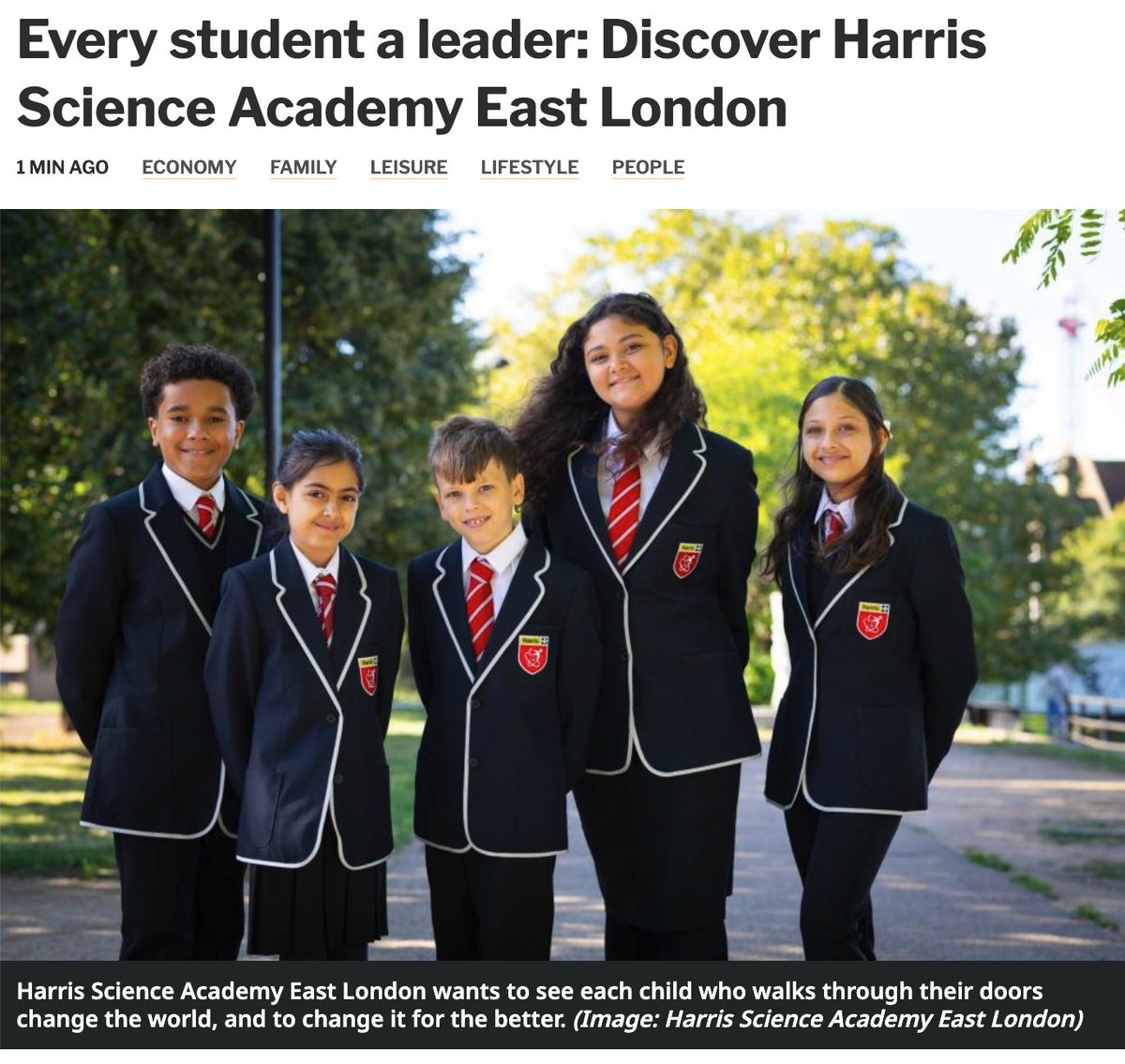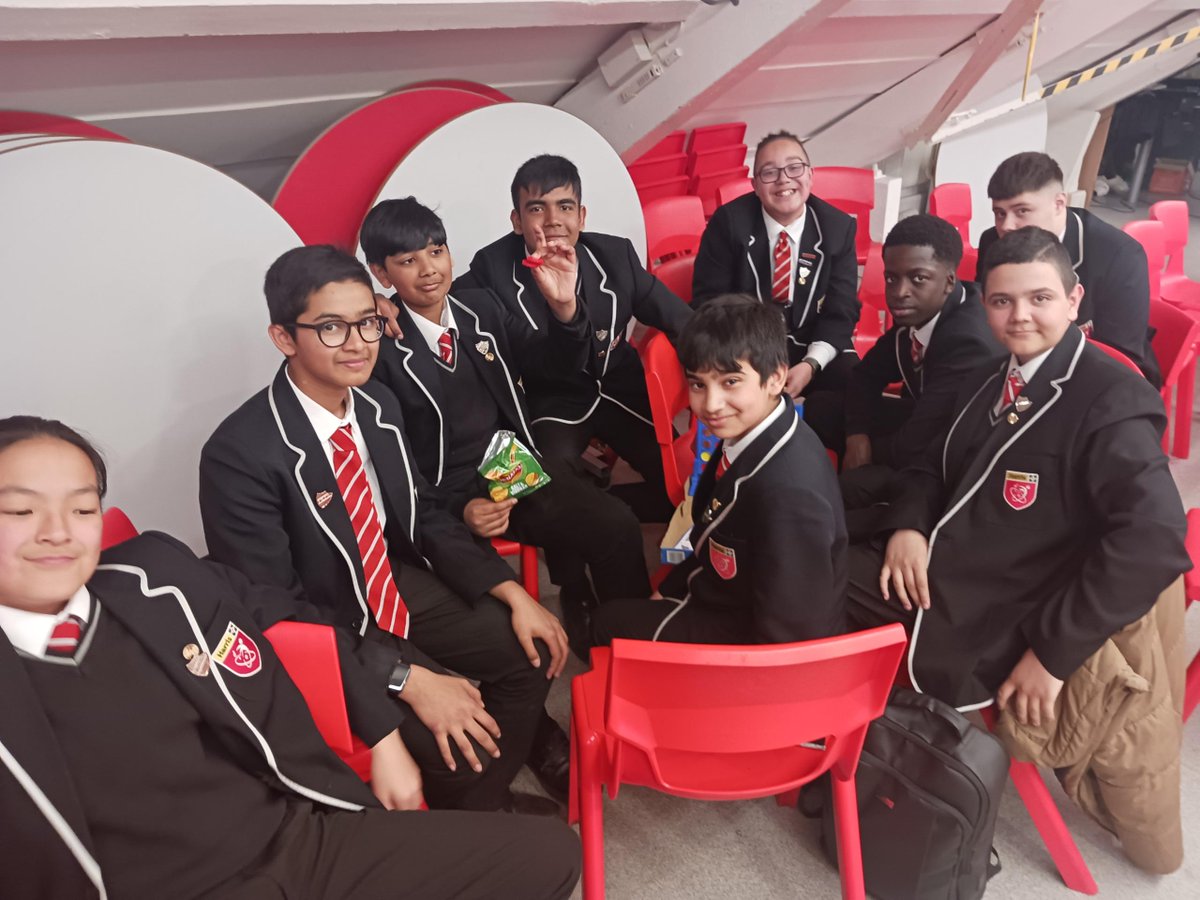SEN & Disabilities
HSAEL SEND Team
SENCO: Ms Boyle (SEND@harrisscienceeastlondon.org.uk)
The SENCo is supported by an able team of higher-level teaching assistants, teaching assistants, apprentices and specialist external agencies.
SEND support available in your area
- Newham SENDIASS (Special Educational Needs and Disability Independent Advice Service) for knowledge, advice and support based on SEND statutory processes and duties, EHCPs, exclusions and meeting support.
- Newham Local Offer – for links to information, advice and opportunities for SEND families.
- Newham Child and Adolescent Mental Health service – for information on mental health support for young people in Newham.
- National Autistic Society – the UK’s leading charity for autistic people and their families.
Research underpinning our approach
Our approach to SEND support is underpinned by national guidance, educational research and the work of other schools who secure excellent outcomes for students with SEND.
Outstanding schools that have influenced our approach:
- Michaela Community School
- Forest Gate Community School
- High performing Harris Academies
- Ark Greenwich Free School
- Mossbourne Community School
Research that has influenced our approach:
- Education Endowment Foundation (EEF) recommendations on SEND in mainstream schools (here).
- EEF guidance report on Making Best Use of Teaching Assistants (here)
- EEF guide on improving SEND outcomes (here)
National guidance/ legislation underpinning our approach:
- Equality Act 2010: advice for schools DfE Feb 2013
- SEND Code of Practice 0 – 25 (June 2014)
- School Admissions Code of Practice
- The Special Educational Needs and Disability Regulations 2014 (linked to clause 64)
- Schools SEND Information Report Regulations (2014)
- Statutory Guidance on Supporting pupils at school with medical conditions (April 2014)
- The National Curriculum in England framework document (September 2013)
- Teachers Standards 2014
- The Children’s and Families Act 2014
What to do if you are concerned.
Your child’s tutor is your first point of contact if you have any concerns about your child’s learning. It is likely that the tutor will have discussed your concerns with the Academy SENCo. To contact your child’s tutor, please email info@harrisscienceeastlondon.org.uk.
You may wish to arrange a meeting with the SENCo, Ms Boyle. Her contact details are: SEND@harrisscienceeastlondon.org.uk, 020 8981 2680.
If you continue to have concerns, arrange to discuss these with Mr MacPherson, Principal. You can contact him by emailing k.vunzi@harrisscienceeastlondon.org.uk.
As a last resort, you may wish to speak to the Link SEND Governor, Ms E Whiteside.
Intent, implementation, impact, research underpinning approach.
Intent
We believe in inclusive education and supporting all students in order for every student to be a leader in their chosen field, with the opportunity to be leaders of STEM. We are committed to ensuring that all students have access to a well taught academic curriculum. We acknowledge students’ strengths as well as their complexities. We aim to provide the support necessary to empower students to take responsibility for their learning, and character building thereby enabling them to experience success at HSAEL and beyond. All students have the right to achieve their maximum academic and social potential.
Harris Science Academy East London seeks to promote this by providing equality of access and opportunity to all areas of the curriculum. Students are taught in an environment where they receive equal respect and in which their individuality is valued. At the Academy we believe that all students have learning differences rather than learning difficulties and it is our policy to identify and assess these differences and ensure that learning is supported and differentiated to ensure good progress is made by all students.
The mission of the HSAEL SEND department is for every child, including those with additional challenges, to become a leader in their chosen field, with the opportunity to lead in science, technology, engineering and maths.
For students with additional needs and disabilities, this means:
- Students with additional needs and disabilities have excellent attendance.
- Students with additional needs and disabilities make as much academic progress as students without additional challenges.
- Students with additional needs and disabilities transition to an appropriate pathway that will help them to fulfil their ambitions.
- Students with additional needs and disabilities develop the character to help them stand shoulder to shoulder with students from more advantaged backgrounds and contexts.
Our approach to supporting students with additional needs and disabilities is underpinned by the following principles:
- The most powerful intervention is excellent teaching. SEND students’ needs should be primarily met in the classroom, taught by well-trained, highly effective subject experts. We choose approaches for all students that have a disproportionately positive impact on students with additional needs and disabilities.
- All children are entitled to a fully academic curriculum to age 16, because we believe it is this academic curriculum that will provide them with the knowledge required to be a changemaker of the future. We do not replace academic subjects with vocational qualifications, ‘water down’ the content for SEND students or narrow their curriculum.
- Students never caught up by falling further behind. We do not withdraw students from academic lessons for time-bound interventions. Interventions are in addition to and not instead of our core academic offer. Additional interventions should follow a graduated approach, following the ‘assess, plan, do, review’ cycle.
- All students are capable of exemplary behaviour with the right support. We therefore offer high expectations for every child, delivered with warmth and kindness. We want students to enjoy their experience of school and know their teachers care for them deeply.
We never lower the bar for vulnerable students. Rather, we vary the level of support required to ensure that all students can change the world.
Implementation
We believe that students with special educational needs will make the most progress when being taught well. To ensure this happens in every lesson, all lessons at HSAEL follow the same structure. This consistent approach ensures we leave nothing to chance and can create an environment where your child can succeed.
- Our behaviour expectations are explicit, with visuals around the Academy to support and remind students, termly opportunities to practise meeting these expectations and a common language adopted by all staff.
- Reading in every lesson builds literacy skills.
- Daily review helps students recall important learning.
- Exposition breaks concepts down into small steps, with regular opportunities by the teacher to check for students’ understanding.
- Deliberate practice tasks give students opportunities to practise what they have learnt, with the teacher giving feedback on common misconception.
- Holiday homework gives an opportunity for overlearning of important concepts.
- Core knowledge, weekly homework, gives an opportunity for pre-teaching of important terms and consolidation of important learning.

Monitoring and Assessment through Assess, Plan, Do, Review
At HSAEL, we monitor the progress of all students regularly through the curriculum. This involves:
- Termly ‘golden nugget’ tests to check students have mastered and remembered the most important learning from the previous term to make progress.
- Milestone tasks each half term to check students can independently recall and do the things they have been taught.
- Twice yearly summative assessments of all content they have learnt.
After each assessment point, there is an opportunity for all students to receive targeted intervention to understand what they need to do to improve and to act on feedback. The length of time given in the curriculum to respond to each data point varies according to the length of the assessment.
Where there are concerns regarding a student’s attendance, behaviour, punctuality, wellbeing or academic performance, we will put in place extra support to enable them to make progress.
Where progress is not sufficient across a range of indicators or over time, in consultation with parents, we will use a range of targeted assessment tools to better understand the nature of the difficulty and we will put in place targeted support to enable them to make accelerated progress.
When, in spite of targeted support, a child is still not making progress, we will follow the process outlined above to further explore and implement the right support for the child.
At each stage in the above process, we will use a graduated approach, opting for the least intrusive and disruptive intervention possible. All interventions will aim to upskill and support students so that they do not need the additional support on a permanent basis. The impact of interventions will be tracked rigorously, with each intervention having clear success criteria and post-intervention evaluation.
Support Available at HSAEL
|
|
Wave 1 (Universal) |
Wave 2 (Targeted) |
Wave 3 (Specialist) |
|
Communication and Interaction Example: ASD, speech and language difficulties. |
Clear rules and boundaries. Use of visuals for behaviour support. Consistently applied rules and routines. Teaching for mastery through repetition, quizzing, modelling, practice. Access arrangements: prompt, rest breaks. SEND lunch time club. Explicit training on LEADERS expectations in the classroom. Extra curricular clubs at lunch time and after school. |
Vocabulary enrichment programme. Expressive and receptive language speech and language intervention. Zones of regulation intervention. Counselling. Social skills intervention. LSA support in lessons.
|
Direct intervention from speech and language therapist.
Alternative provision placement.
EHCP plan
Additional transition visits. |
|
Cognition and learning Example: dyslexia |
Read now tasks used in all lessons. Whole school reading programme. Use of Bedrock platform. Use of SPARX platform for maths. Pre-learning of core knowledge through independent learning. Access arrangements: extra time, rest breaks, assistive technology. Smaller group teaching in some year groups. Homework club. |
Touch typing intervention. Handwriting intervention. Lexia reading intervention. 1:1/ small group reading support. Hackney Lit reading intervention. Reading for empowerment programme
|
Educational Psychologist direct work.
EHCP plan
|
|
Social, emotional and health difficulties Example: ADHD, medical, depression/ anxiety, |
Clear rules and boundaries. Adjusted seating plans. Access arrangements: extra time, rest breaks. Use of visuals for behaviour support. Breakfast club. |
Social skills intervention. Mentoring by staff/ peer. Allocated key worker. School counsellor support. Zones of regulation support. Targeted use of time out. LSA support in lessons. Additional transition visits. Strengthening Minds mentoring. Reading for empowerment programme |
CAMHS intervention
Alternative provision placement.
EHCP plan
Diabetes nurse intervention
Additional transition visits. |
|
Sensory/ physical needs Example: visual/ hearing impairment. |
Adjusted seating plans. Amended resources. |
Assistive technology.
|
Use of Newham sensory service. Occupational therapy input. EHCP plan |






















